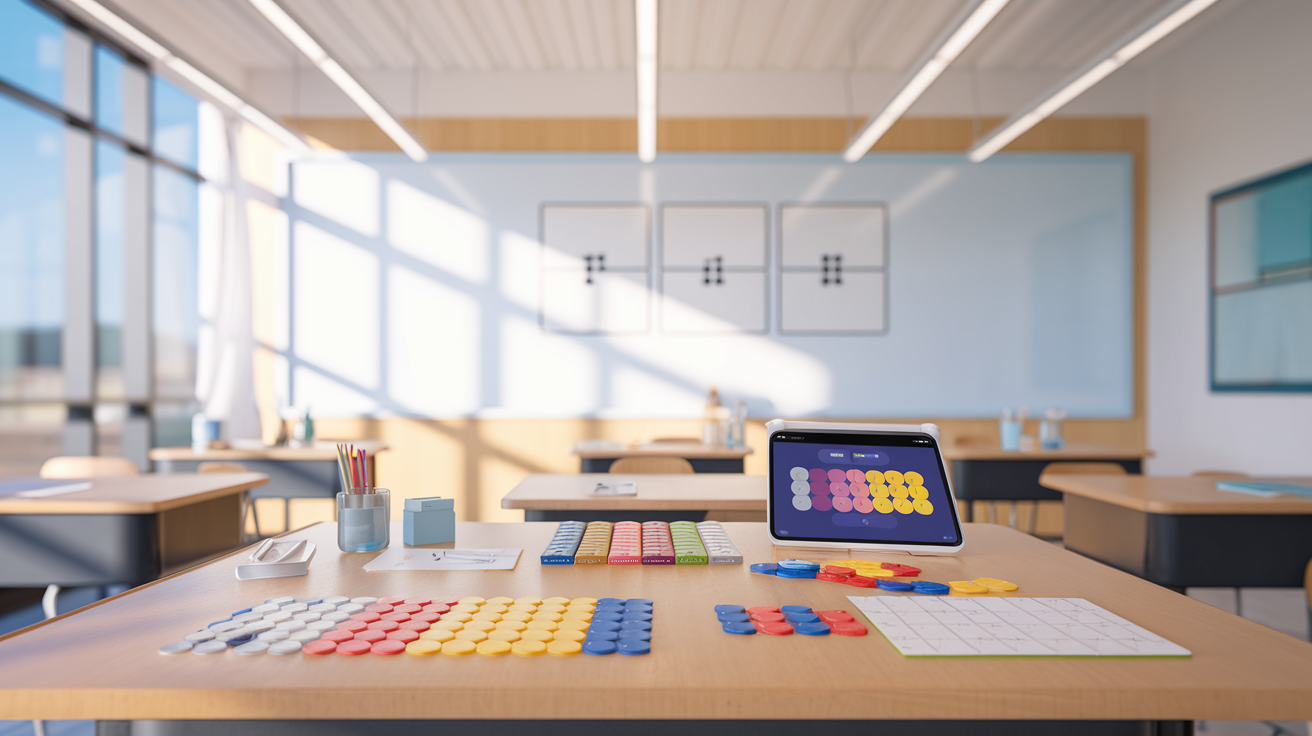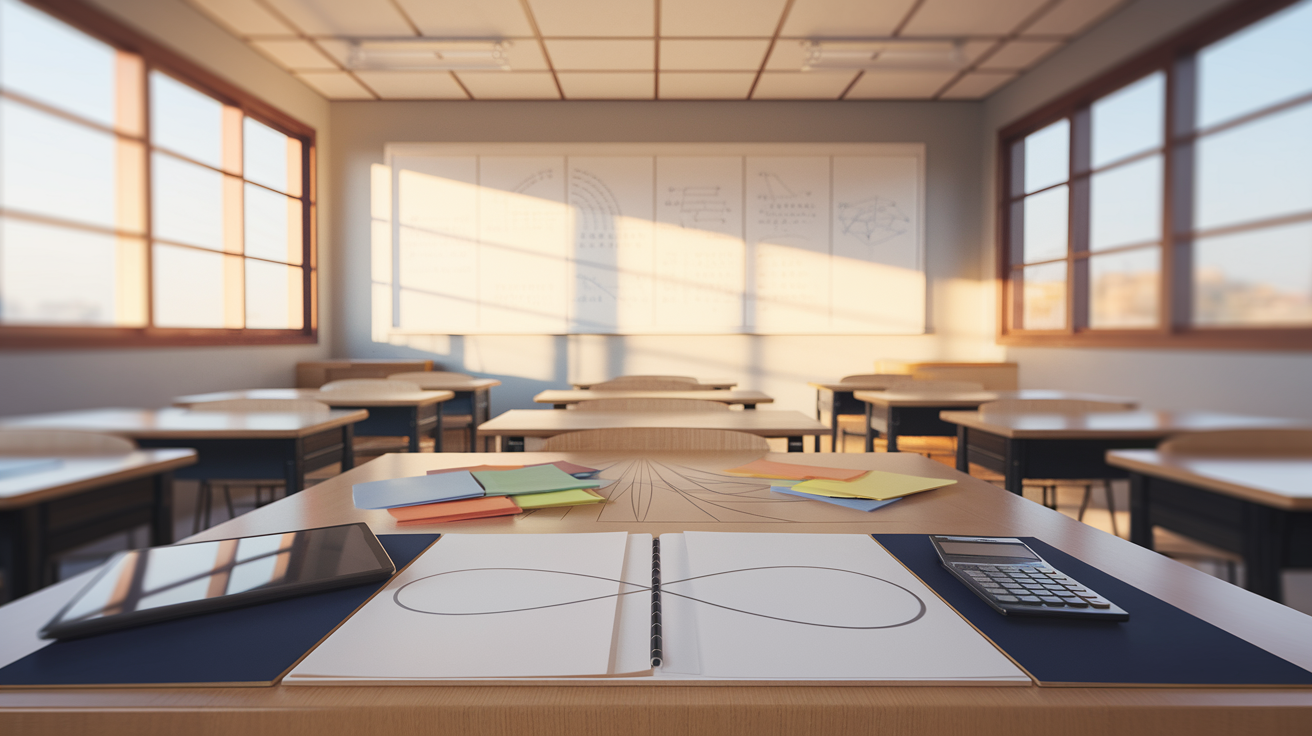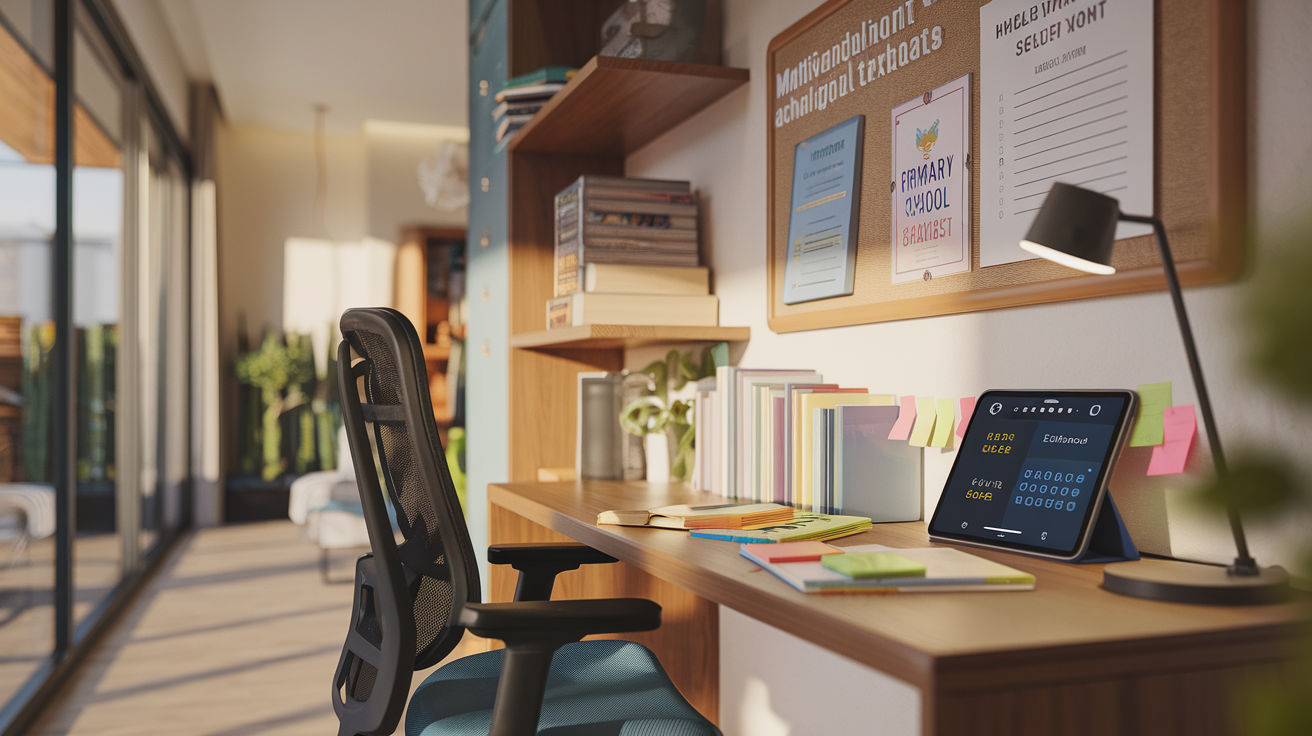- Sep 25, 2024 - 12 min read
Creating the Perfect Study Environment: Tips for Better Focus and Concentration

In this blog post, we’ll discuss the importance of a dedicated study space and provide actionable tips to help students create the perfect study environment that fosters focus and concentration.

Key benefits include:
- Enhanced Concentration: A peaceful environment minimizes distractions, allowing students to focus more on their tasks.
- Increased Productivity: When students feel comfortable and organized, they are more likely to stay motivated and get work done efficiently.
- Improved Retention: A good study space helps reinforce learning by creating a routine where students can absorb and retain information better.
- Stress Reduction: A clutter-free, organized space can reduce feelings of stress and overwhelm, which often accompany intense study sessions or exam periods.

2. Tips for Creating the Perfect Study Environment
The first step to creating an ideal study environment is choosing a place where students can concentrate without distractions. Consider the following when selecting the right spot:
- Location: Pick a quiet area of the home or tuition center, away from busy areas like the living room or kitchen. A separate study room or quiet corner can provide the right atmosphere.
- Comfort: The study space should have a comfortable chair and desk that promotes good posture. Avoid overly comfortable spaces like the bed, which might lead to drowsiness and lack of focus.
B. Keep the Study Area Organized
A cluttered workspace can lead to distractions and hinder productivity. An organized space, on the other hand, creates mental clarity and helps students focus on the task at hand. Here are a few organization tips:
- Declutter the Desk: Ensure the study desk is free from unnecessary items. Only keep essential supplies like notebooks, textbooks, stationery, and a water bottle within reach.
- Use Organizers: Utilize desk organizers, shelves, or file holders to store papers, books, and materials neatly. This reduces the time spent looking for things and increases study efficiency.
- Minimize Digital Clutter: If studying on a computer or tablet, close unused tabs and applications to prevent distractions from unnecessary notifications or websites.
C. Ensure Proper Lighting
Good lighting is essential for staying focused and avoiding eye strain during study sessions. Here are a few tips to improve lighting in a study space:
- Natural Light: If possible, choose a study space near a window that allows natural light to flow in. Natural light helps boost mood and energy levels.
- Desk Lamp: If natural light isn’t available, invest in a good desk lamp with adjustable brightness to ensure adequate lighting at night or in dimly lit rooms. Avoid harsh fluorescent lighting, which can cause headaches and reduce focus.
D. Limit Distractions
Reducing distractions is key to maintaining focus during study sessions. Here’s how to limit common distractions:
- Turn Off Electronic Devices: Put away smartphones, tablets, or gaming devices that are not being used for studying. If necessary, use apps like “Focus Mode” to block notifications temporarily.
- Create a “Do Not Disturb” Zone: Inform family members or housemates that the study area is a quiet zone, especially during important study sessions. Noise-canceling headphones can also help block out ambient noise.
Set Boundaries: If possible, create a clear separation between study space and leisure space. This helps students mentally switch between study and relaxation mode more effectively.

3. Incorporating Focus-Enhancing Elements
A study timer can help improve focus and productivity by breaking study sessions into manageable chunks. One popular method is the Pomodoro Technique, which involves studying for 25-minute intervals followed by short 5-minute breaks. This approach helps maintain focus without overwhelming the student.
B. Add Personal Touches for Motivation
While it’s important to keep the study area minimal, a few personal touches can inspire and motivate students to study. For instance:
- Inspiration Boards: Create a vision board with motivating quotes, goals, or achievements to keep students driven during long study sessions.
- Plants and Greenery: A small indoor plant or two can brighten up the study area and boost mood, making the space feel more inviting and less stressful.
C. Background Music for Concentration
For some students, light background music can improve concentration. However, it’s important to choose music that enhances focus rather than distracts. Classical music, instrumental tracks, or soft ambient sounds work well for many students. Experiment with different genres to see what works best for individual preferences.

4. Staying Organized Digitally
- Create a Folder System: Keep subjects and topics organized by using folders on your computer or cloud storage. Label each folder according to subjects (e.g., Math, Science, English) and create subfolders for notes, assignments, and past papers.
- Use Study Apps: Utilize apps like Notion, Evernote, or Google Keep to store notes, set reminders, and organize tasks. Many apps allow students to create to-do lists, set study goals, and keep track of deadlines.
- Backup Your Work: Always save and back up important documents to cloud storage platforms like Google Drive or OneDrive to prevent losing valuable study materials.

5. Study Habits for Long-Term Focus
Even with the perfect environment, maintaining focus requires cultivating effective study habits. Here are some essential habits that enhance focus and make the most of your study environment:
- Set Clear Goals for Each Session: Before beginning a study session, have a clear objective. Whether it’s reviewing a specific chapter, practicing math problems, or preparing for a science test, knowing your goal helps maintain focus.
- Take Regular Breaks: Studying for long periods without breaks can lead to burnout and reduced concentration. Short breaks between study sessions can refresh the mind and improve retention.
- Stay Hydrated and Healthy: Keep a water bottle on hand to stay hydrated, and have healthy snacks available to maintain energy during longer study sessions. Avoid sugary snacks and energy drinks, which can lead to energy crashes.
Conclusion
Encourage students to experiment with these tips to discover what works best for them. A supportive and optimized environment, combined with self-discipline, can lead to a more productive, efficient, and enjoyable study experience.





